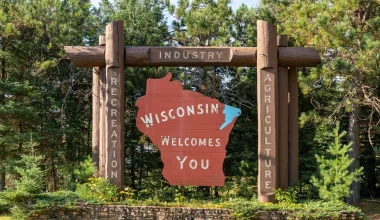The Marijuana Industry Group (MIG), one of Colorado’s oldest cannabis business organizations, is winding down its operations.
Founded in 2010, the MIG has played a critical role in the development of Colorado’s cannabis industry.
The organization has been working with Colorado Leads to influence policy and regulatory issues.
Initially, the Marijuana Industry Group planned to merge with Colorado Leads so the organizations would speak in a unified voice for the state’s cannabis industry, according to an email sent to MIG members.
Instead, the MIG is ceasing operations.
“Colorado Leads will ensure lobbying efforts remain at full force through this critical legislative session,” MIG Board Chair Bruce Nassau wrote in the email.
“We hope you will remain engaged in advocating for the Colorado cannabis industry by supporting Colorado Leads and other organizations working to advance sensible cannabis laws and regulations.”
Group seeks marijuana regulatory improvements
Colorado Leads CEO Chuck Smith, who has worked in the cannabis industry for more than a decade, said the organization he founded in 2017 will focus on legislative priorities.
Colorado’s legislative session began Jan. 8.
In 2024, the Colorado cannabis industry’s efforts focused on eliminating unnecessary regulations that were put in place when adult-use marijuana first became legal in Colorado in 2014.
Senate Bill 24-706 (Streamline Marijuana Regulation), which Smith refers to as Regulatory Efficiency 1.0, took effect in August.
Measures under the revised law include:
- Not requiring a licensee to use radio frequency identification (RFID) technology to track regulated marijuana.
- Extending the initial license and license renewal periods from one year to two years.
- Allowing an owner with multiple regulated marijuana business licenses to submit a single initial or renewal application instead of an application for each license.
The revised law set the stage for Regulatory Efficiency 2.0 this year, which aims to reduce the cost of regulation within the industry as well as for Colorado’s Marijuana Enforcement Division.
“We know how tight the budget is in Colorado,” Smith said.
“We look at this as a cooperative partnership to reduce the work they have so long as we don’t impact public safety and other requirements.”
Time to tweak adult-use law
Among the measures Colorado Leads will work on is getting the state Legislature to reduce the 15% excise tax “to a level that’s economically viable for the industry,” said Mason Tvert, a partner at Denver-based consulting firm Strategies 64, which is advising Colorado Leads.
“When Amendment 64 passed, it was approved to have solely an excise tax,” said Tvert, a key figure in the passage of the measure that legalized adult-use cannabis in Colorado.
“The Legislature went on to create additional taxes. Now we’re in a situation where the taxes have grown a lot more out of whack with what was initially intended.”
2024 MJBiz Factbook – now available!
Exclusive industry data and analysis to help you make informed business decisions and avoid costly missteps. All the facts, none of the hype.
Featured inside:
- Financial forecasts + capital investment trends
- 200+ pages and 49 charts highlighting key data figures and sales trends
- State-by-state guide to regulations, taxes & market opportunities
- Monthly and quarterly updates, with new data & insights
- And more!
The voice for Colorado’s cannabis industry
Former Colorado Rep. Dan Pabon – now general counsel for vertically integrated marijuana multistate operator Schwazze and a board member of Colorado Leads – said the organization is critical to lifting the state’s cannabis industry out of its economic depression.
For the past 13 years, Colorado has been the model for other states entering the regulated marijuana industry, and now, with declining revenue and employment, it’s time for the state to update the rules, Pabon said.
“We need to focus now on the Colorado environment and legislative environment so we can ensure there’s continued opportunity for entrepreneurs and employees as we move away from prohibition and the war on drugs,” Pabon said.
Pabon said Colorado Leads will review what rules need to remain in place to protect public safety and children, noting that not all of them will accomplish those goals.
For example, marijuana businesses must maintain certain records for longer than many mainstream companies. They’re also required to install security cameras to monitor their premises.
“If you go into a liquor store, there are no mandatory cameras that cover every inch of the store,” Pabon said.
“If you want to work in the liquor industry, you don’t have to pay to get a badge.”
Colorado Leads seeks to change or eliminate rules it believes are costly and inefficient but don’t improve public safety.
Margaret Jackson can be reached at margaret.jackson@mjbizdaily.com.
Medical Disclaimer:
The information provided in these blog posts is intended for general informational and educational purposes only. It is not a substitute for professional medical advice, diagnosis, or treatment. Always seek the advice of your physician or other qualified healthcare provider with any questions you may have regarding a medical condition. The use of any information provided in these blog posts is solely at your own risk. The authors and the website do not recommend or endorse any specific products, treatments, or procedures mentioned. Reliance on any information in these blog posts is solely at your own discretion.






